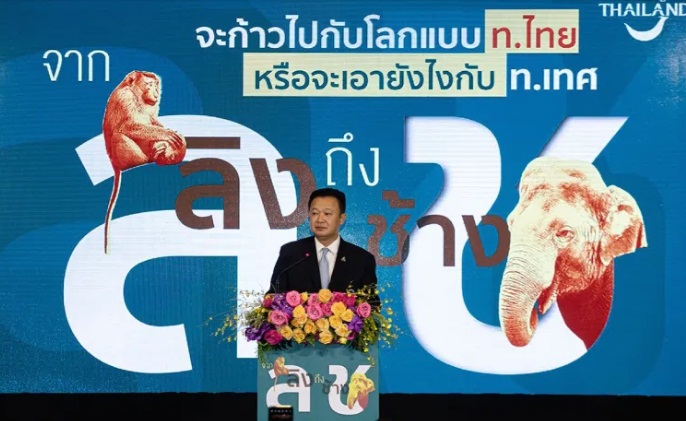The Tourism Authority of Thailand (TAT) is to step up collaboration and communication with Thai government authorities to better monitor the elephant tourism attractions in response to foreign media reports about alleged abuse and mistreatment.
The subject was discussed at a special forum organised by TAT on 14 August, 2020, at the Bangkok Art and Culture Centre. Speakers included Senator Mr. Weerasak Kowsurat; Mr. Sumart Indaramanee, Chairman, Ecotourism by Klong Noi Community Club, Surat Thani; Dr. Sittidej Mahasavangkul, Special Advisor, Elephant National Institute; Dr. Chatchote Thitaram, Faculty of Veterinary Medicine, Chiang Mai University; Dr. Somchuan Rattanamangkalanond, Deputy Director-General of the Livestock Development Department; Mr. Laithongrien Meephan, owner of the Ayutthaya Elephant Kraal and President of the Thai Elephant Conservation Club, and Mr. Theerapat Trangprakan, Chairman of the Thai Elephant Alliance.
The forum was initiated by Mrs. Srisuda Wanapinyosak, TAT Deputy Governor of International Marketing – Europe, Africa, Middle East and Americas, and she also shared TAT’s initiatives on Elephant Care Tourism at the forum.
Elephants have played a very important role in Thai society and culture beyond just their economic value. Thailand has more domesticated elephants than anywhere else in the world.
The COVID-19 pandemic has seriously affected the elephant tourism attractions. Their owners and hundreds of employees are in a state of crisis with no income. Without tourists, providing the elephants with basic health and hygiene care is not possible. Because they are large animals, caring for them costs significantly more than other animals, especially if they are sick.
Releasing elephants back to nature is also difficult and unsustainable. Domesticated elephants are unfamiliar with life in the forest and can pose a danger if they venture into townships and villages. But most importantly, the dwindling forest areas are not enough for the hordes of these elephants.
Mr. Yuthasak Supasorn, Governor of TAT, said, “This forum was designed to brainstorm amongst a broad cross-section of stakeholders in response to media reports about alleged maltreatment of animals (monkeys and elephants) for tourism.
“It is well-known that elephants have been an integral part of Thai society for centuries. Thailand also has a Thai Elephant Day. We honour elephants as an important animal of Thailand. Elephant and Thai people have lived side by side for centuries. For them, elephants are members of their families.”
Elephants have also become very important to the tourism industry. There are more than 3,000 elephants in the tourism business or reared elephants nationwide. They live in 250 elephant camps in 22 provinces across the country. Research by the Faculty of Economics, Chiang Mai University has estimated that elephants generate over 6 billion Baht a year in tourism income.
Mr. Yuthasak added, “In the past, elephants were mostly trained and nurtured for deployment in the forestry industry. After 1989, the government issued a decree to abolish forest concessions without measures to support them. As such, the domesticated elephants found it difficult to return to their natural habitat, and tourism offered one alternative means of survival. As a result, similar to many other sectors in those times, elephants have taken on a new role in the tourism industry. Hence, TAT can and should play an important role in solving problems and creating a more sustainable sector.”
The Governor said that as part of TAT’s vision for Thailand as a preferred destination, a strategy for sustainability has been established under the project called “Elephant Care Tourism” in order to offer tourism that cares about the Thai elephant.
This, he said, will based on three pillars: 1) elephant welfare 2) elephant conservation, and 3) clear standards. It will operate under a strategy known as the 3Cs (Communication, Collaboration, Compromise):
1. Communication for wider public awareness through factual information about taking care of elephants in Thailand. This is an important issue, which should enhance public understanding based on accurate information.
2. Collaboration with each other in working under international norms. The entire tourism industry must discuss the matter jointly, including both Thais and expatriates.
3. Compromise on standards that are acceptable to all parties, which will allow us to move forward positively and constructively for a common benefit.
“I hope that today’s forum will lead to the adoption of the 3C’s to ensure the sustainability of the Thai Elephant Industry or Elephant Care Tourism,” Governor Yuthasak said.
The forum also heard of various legal and regulatory moves that will further strengthen this effort. One of the most important steps regarding elephants in Thailand is the news that a standard is on the way.
The Department of Livestock Development has proposed a standard of domesticated elephant welfare care to the Minister of Agriculture to propose to the Cabinet for promulgation as a compulsory standard. This will be based on the Cruelty Prevention and Animal Welfare Act. When the standard regulation is enforced, establishments with elephants will be examined and regularly audited.
The Department of Livestock, together with the Department of Provincial Administration and the Department of National Parks, Wildlife and Plant Conservation, will jointly expedite the proposal of the Elephant Act to create a specific government unit that will take care of domesticated elephants and captive elephants. No such unit has existed so far.
A National Elephant Care Master Plan has been drafted but is still awaiting clearance by the Office of the Permanent Secretary for the Prime Minister’s Office.
The Department of Livestock Development has also up a system for the authorities to be notified in the event of an animal being abused or mistreated. The public can do this directly via the DLD4.0 mobile application.
The forum was broadcast live via Facebook. The morning session had over 20,000 viewers/listeners. The afternoon session had 15,000 viewers/listeners. There were 200 shares.

